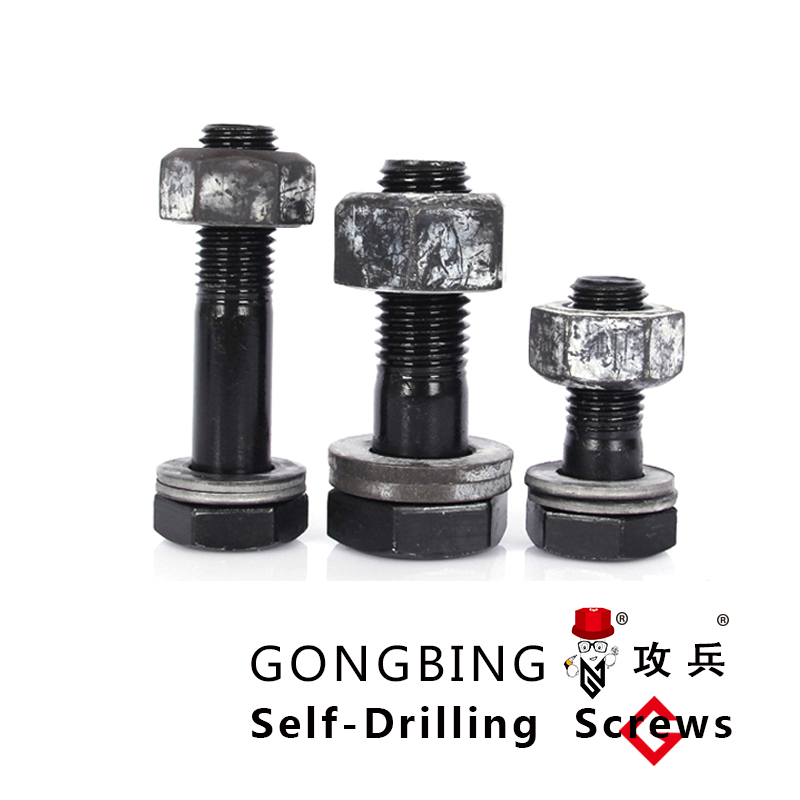plastic expanding nut
The Expanding Innovation A Comprehensive Look at Plastic Expanding Nuts
In the ever-evolving realm of hardware and construction, innovation is the lifeblood that drives efficiency, durability, and effectiveness in fastening solutions. Among the many advancements, one particularly noteworthy component is the plastic expanding nut. This humble but ingenious device holds significant promise for various applications, particularly in the construction and automotive industries.
What is a Plastic Expanding Nut?
A plastic expanding nut is a fastening component designed to be inserted into pre-drilled holes in materials such as wood, drywall, or even certain plastics. Its unique design allows it to expand when a screw or bolt is inserted, creating a secure grip and holding power that is often equal to, if not better than, its metal counterparts. Typically made from high-quality polypropylene or nylon, these nuts are lightweight, resistant to corrosion, and offer excellent thermal and chemical stability.
Advantages of Plastic Expanding Nuts
1. Lightweight and Versatile One of the standout qualities of plastic expanding nuts is their lightweight design. This makes them particularly appealing in applications where reducing overall weight is crucial, such as in the automotive or aerospace sectors. They can be used in a wide array of materials, which adds to their versatility and broadens their applicability across different projects.
2. Corrosion Resistance Unlike traditional metal fasteners, plastic expanding nuts are impervious to rust and corrosion. This attribute makes them ideal for applications in humid or corrosive environments where metal components may fail. They ensure longevity and reliability, which are crucial for maintaining the integrity of various structures and assemblies.
3. Electrical Insulation The non-conductive nature of plastic provides an added benefit in electrical applications. Plastic expanding nuts can be safely used in electronic devices and automotive assemblies without the risk of short circuits or electrical leakage, making them a superior choice for securing components in sensitive environments.
plastic expanding nut

4. Ease of Installation The installation process for plastic expanding nuts is simple and intuitive. They can be quickly inserted into pre-drilled holes, expanding upon screw insertion. This user-friendly approach not only saves time during assembly but also reduces labor costs, translating to cost savings for manufacturers and builders.
Potential Applications
The applications for plastic expanding nuts are virtually limitless. In the construction industry, they are frequently used for fastening drywall, securing furniture, and assembling prefabricated structures. In the automotive sector, they can be found in interior applications, securing panels, and components where lightweight materials are desired. Additionally, they can be utilized in the manufacturing of electronic devices where securing delicate components without the risk of damage is paramount.
Future of Plastic Expanding Nuts
As we continue to push boundaries in material science and engineering, the potential for further innovations in plastic expanding nuts is vast. Future developments may focus on enhancing their load-bearing capabilities, heat resistance, or even integrating sustainable materials into their production. As industries strive for greener solutions, the use of recycled plastics in creating expanding nuts could emerge as a standard practice, promoting sustainability without sacrificing performance.
Conclusion
Plastic expanding nuts exemplify how a small component can yield significant benefits across various industries. Combining robustness and versatility, they represent a forward-thinking solution in fastening technology. As we adapt to modern challenges and prioritize sustainability, the role of plastic expanding nuts is likely to expand, paving the way for novel applications and advancements in the future. The journey of innovation continues, with plastic expanding nuts leading the charge in efficient fastening solutions.
-
Weatherproof Plastic Expansion Anchors for Outdoorព័ត៌មានJun.06,2025
-
Sustainability in the Supply Chain: Eco-Friendly TEK Screws Productionព័ត៌មានJun.06,2025
-
Load-Bearing Capacity of External Insulation Fixingsព័ត៌មានJun.06,2025
-
Double Head Bolts: Enhancing Efficiency in Industrial Machineryព័ត៌មានJun.06,2025
-
Corrosion Resistance in Chipboard Screws: Coatings for Wholesale Durabilityព័ត៌មានJun.06,2025
-
Butterfly Toggle Bolts : Enhancing Structural Resilienceព័ត៌មានJun.06,2025
